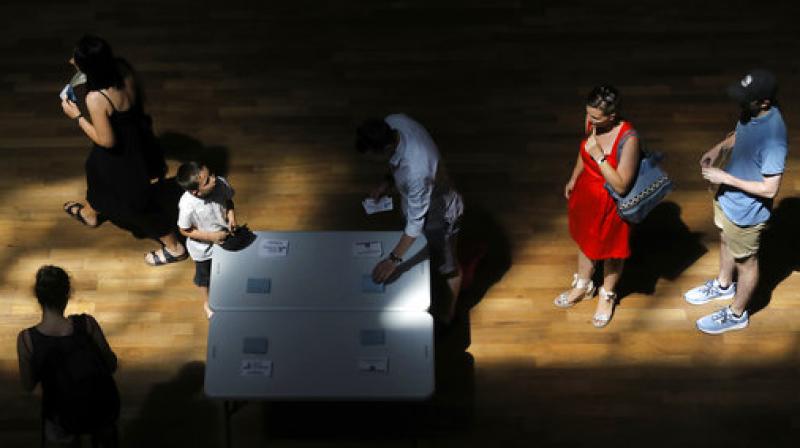France parliamentary election turnout low so far

Paris: French authorities say 17.8 percent of voters have cast ballots so far in the final round of parliamentary elections, down from previous votes, amid concern about low turnout.
The Interior Ministry said the midday participating figures in Sunday's nationwide voting compare to 21.4 percent at midday during the second round of the last parliamentary elections in 2012.
At midday during the first round voting last Sunday, turnout was 19.2 percent. Overall, the first-round vote saw record low voter interest, with less than half of France's 47.5 million voters taking part overall.
Rivals of President Emmanuel Macron's dominant new party are urging more voters to cast ballots this time in hopes of preventing him from having a crushing majority.
French President Emmanuel Macron has voted in parliamentary elections expected to hand his 14-month-old party a big majority. Curious crowds gathered in the northern seaside town of Le Touquet where Macron cast a ballot Sunday morning in the second round of elections for the 577-seat National Assembly. His centrist Republic on the Move! party is expected to win more than 400 seats.
Prime Minister Edouard Philippe, a center-right politician who joined Macron's movement, cast his ballot in the port of Le Havre. Far-right National Front leader Marine Le Pen is voting in the depressed northern town of Henin-Beaumont, where she is running for a parliament seat. Far-left ex-presidential candidate Jean-Luc Melenchon is voting in the Mediterranean city of Marseille, where he is seeking a seat as well.
French voters are casting ballots in the final round of parliamentary elections that could clinch President Emmanuel Macron's hold on power, as his fledgling party overturns politics as usual.
Pollsters say that after routing traditional parties in last week's first-round vote, Macron's Republic on the Move! party could win up to 450 seats Sunday in the 577-seat National Assembly, the powerful lower chamber.
That would allow Macron to move fast with promised legislation, notably on changing labor laws to make hiring and firing easier.
Candidates from the conservative party, The Republicans, are expected to form the largest opposition group, with 70-110 seats, according to pollsters.
Less than half of the 47.5 million-strong electorate turned out last Sunday, a record low that especially punished Marine Le Pen's far-right National Front party.

